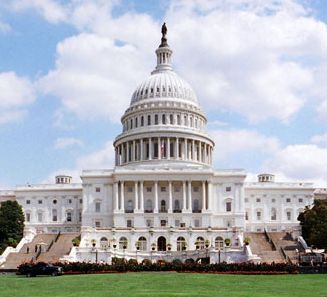

Microsoft has officially made its Azure Government Cloud service generally available, after more than a year in a preview.
Microsoft’s Azure Government Cloud service is a close lookalike for the Amazon GovCloud, and is part of CEO’s Satya Nadella plans to transform Microsoft into a cloud services powerhouse.
Of course, Microsoft is late to the game when compared to Cloud rivals like Amazon, but it is catching up rapidly.
It was back in October 2013 when Microsoft updated its enterprise cloud services. Part of that upgrade included a new Microsoft Azure Government Cloud for the United States.
And now over a year later Redmond has officially announced the general availability of the Microsoft Azure Government Cloud, meaning it is open for all workloads and all government customers. It also announced the upcoming availability of Dynamics CRM Online for Government.
It said that these offerings, combined with Office 365 Government, “provide the most complete cloud for US government customers.” The Cloud service is being aimed at federal and local agencies, and individual US states.
Essentially, Azure Government will maintain all data within the United States, and in actual data centres and networks physically isolated from the rest of Microsoft’s cloud computing solution. And it is managed by cleared US personnel. Redmond claims that Azure Government meets or exceed public sector security, privacy and compliance standards.
“Azure Government provides hybrid, hyperscale, enterprise-grade solutions that enable government agencies to run the operating systems, languages and application of choice in Microsoft’s government cloud, public cloud or their own data centre with a consistent platform and the flexibility and capacity to scale up or down on demand,” said Microsoft.
Azure Government is compliance with the Federal Risk and Authorization Management Program (FedRAMP), a mandatory government-wide program that specifies a standardised way to carry out security assessments for cloud services.
Meanwhile, Dynamics CRM Online for Government will be generally available in January. This adds cloud-based business applications such as case management and logistics.
Early adopters of Microsoft’s integrated cloud offerings include the states of Texas and Alabama. Texas has 110,000 Office 365 seats.
In March this year, Windows Azure was rebranded as Microsoft Azure as part of Redmond’s company-wide transformation into a cloud services player. Indeed, Microsoft is working hard to promote its cloud offerings, and in October, announced Cloud Platform System (CPS), an “Azure-in-a-box” offering that will run on customers’ premises but will connect to Microsoft’s public Azure cloud and run Azure software.
Do you know all about Microsoft Windows Phone? Take our quiz.
American space agency prepares for testing of Boeing's Starliner, to ensure it has two space…
As UK and Europe develop closer military ties, European Commission says it will invest €1.3…
Zuckerberg seeks to revive Facebook's original spirit, as Meta launches Facebook Friends tab, so users…
Notable development for Meta, after appeal against 2021 WhatsApp privacy fine is backed by advisor…
First sign of shake-up under new CEO Lip-Bu Tan? Three Intel board members confirm they…
Trump's nominee for SEC Chairman, Paul Atkins, has pledged a “rational, coherent, and principled approach”…